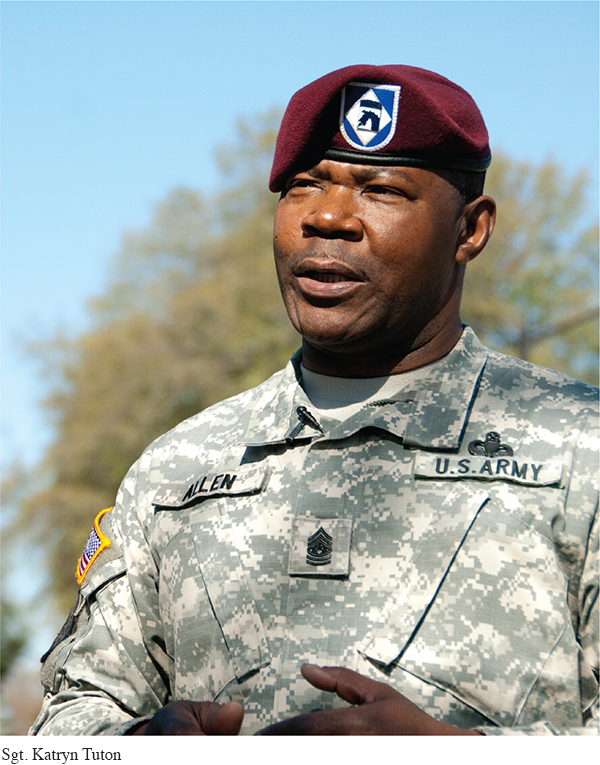7.1 Chapter Introduction
7
Active Listening
W hen Command Sergeant Major Joseph Allen speaks with troops about the roles of soldiers and noncommissioned officers, he says something not normally heard from superiors: “I work for you; if there’s something I need to do, you need to tell me” (Dey, 2010). Though that message is unusual, Allen sees it as essential. Along with high expectations for his own duties, Allen believes that “listening is a powerful tool for leaders, and it’s a big part of [my] approach to dealing with service members” (Dey, 2010). Such a view has worked well for Allen, whose successful military career spans over 35 years.
Although many civilians may assume that interactions in the U.S. military consist only of commands and assents, the emphasis that Allen places on actively listening to others is far from unique. Officers increasingly stress listening as the cornerstone of communication. In fact, Navy Admiral Mike Mullen describes the three Ls of leadership as “listening, learning, and leading” (Garamone, 2011). As Mullen tells it, “The more senior I’ve become, the more I try to listen to others and to see challenges and problems through other people’s eyes, whether they are service chiefs, combatant commanders, or military leaders throughout the world” (Garamone, 2011). Of course, it isn’t just U.S. military officers who feel this way. The NATO (North Atlantic Treaty Organization) guide on leadership and command specifically mentions that listening skills are essential for successful military command around the world (Febbraro, McKee, & Riedel, 2008).
During combat operations, active listening can even mean the difference between life and death. Soldiers must be able to hear, understand, and respond immediately to commands so that everyone takes the actions needed to come out of the engagement safely. The benefits of active listening are not solely tactical, however. In helping soldiers recover from combat-

Being a good listener is hard work. Whether you’re in the military or a civilian, in a public or a private setting, it takes a lot of mental energy to remain focused on other people, follow what they are saying, and make sense of it. Yet many people think of listening as something that just happens. Nothing could be further from the truth. People spend more time listening than engaging in any other type of communication activity (Jalongo, 2008). Moreover, the ability to listen actively has been shown to improve academic success (Brigman, Lane, Lane, Lawrence, & Switzer, 1999) and can increase your ability to provide emotional support to others (Bodie & Fitch-
How the listening process works
Why people use different listening styles
The barriers to active listening
Ways to strengthen your active listening skills